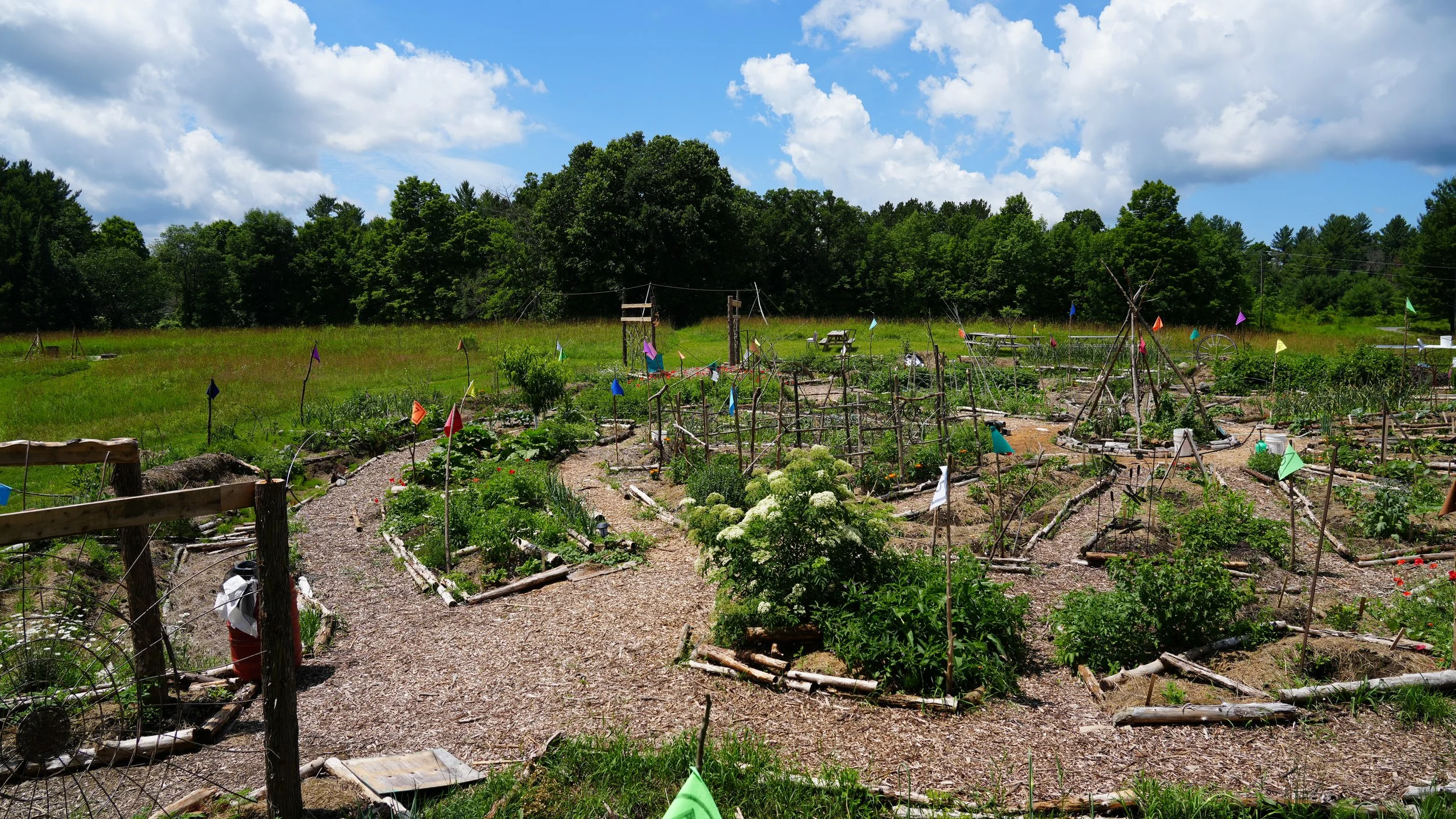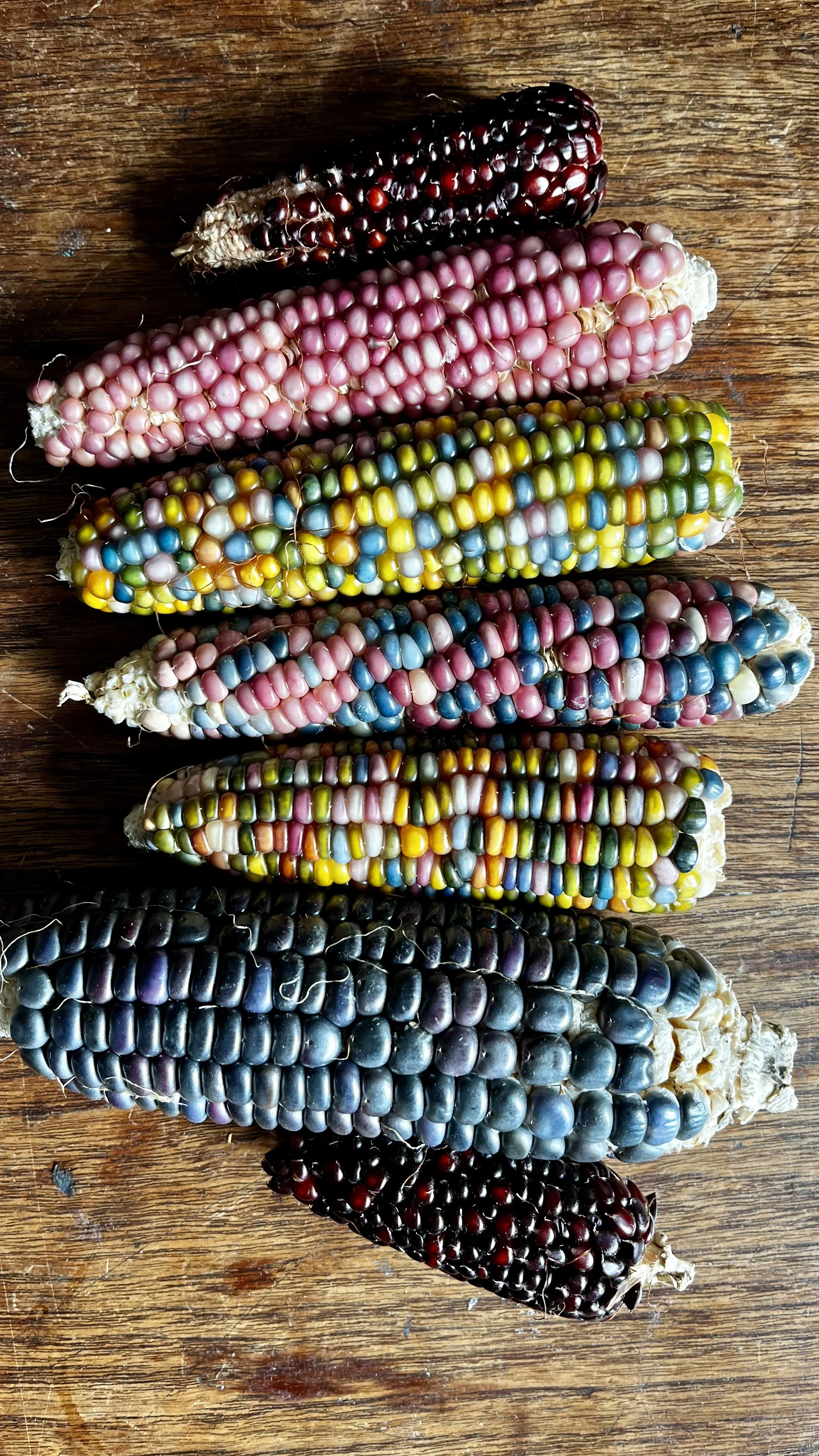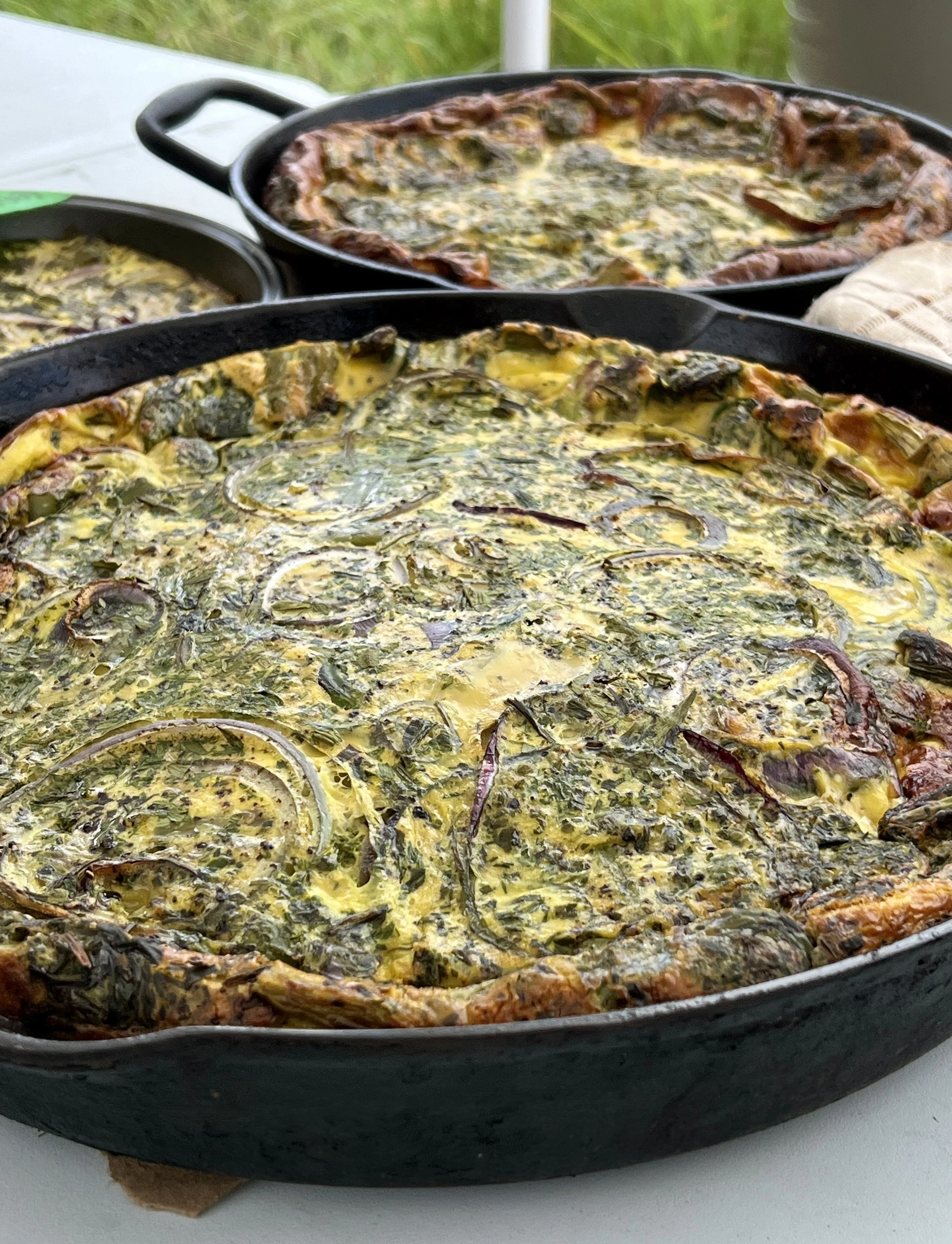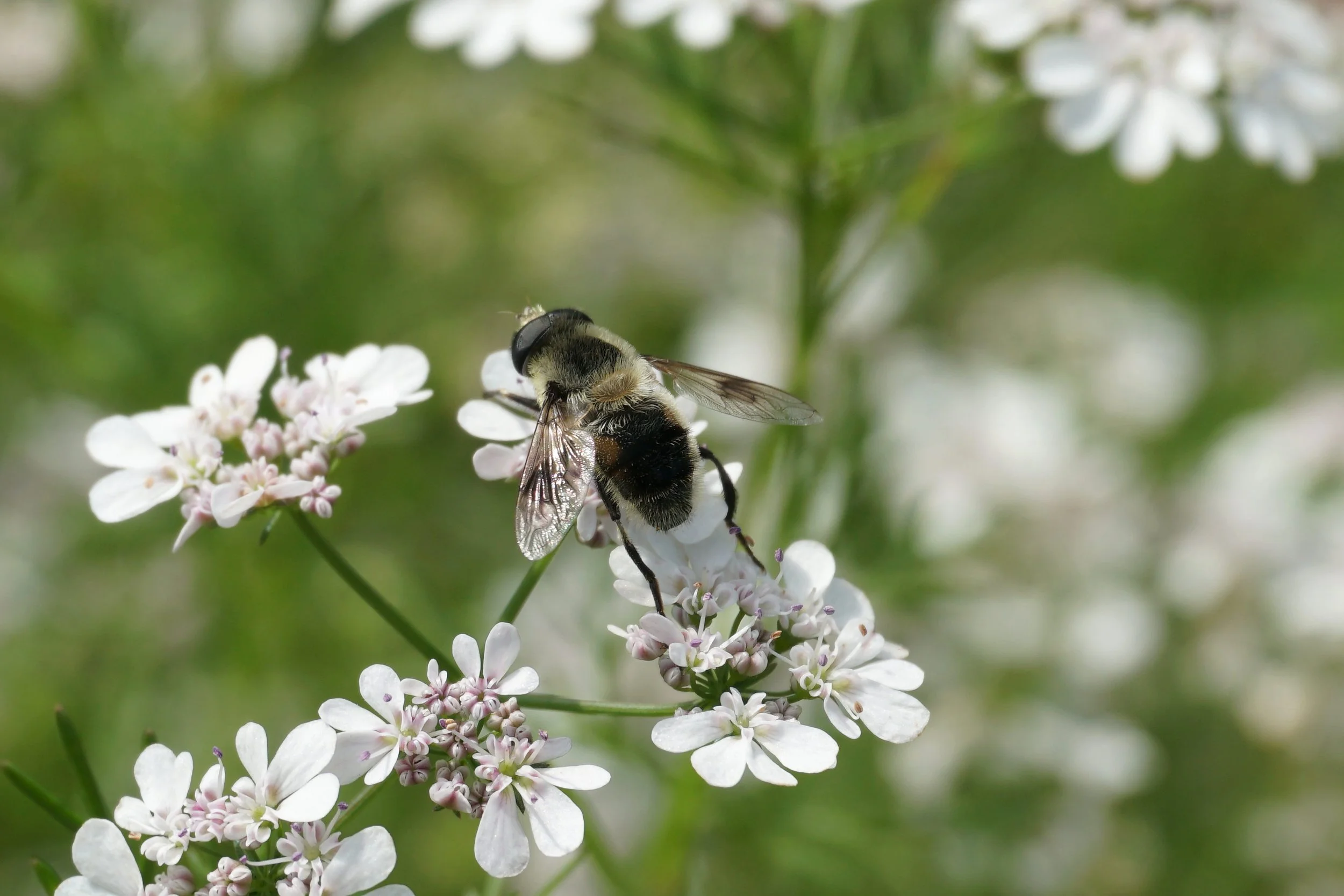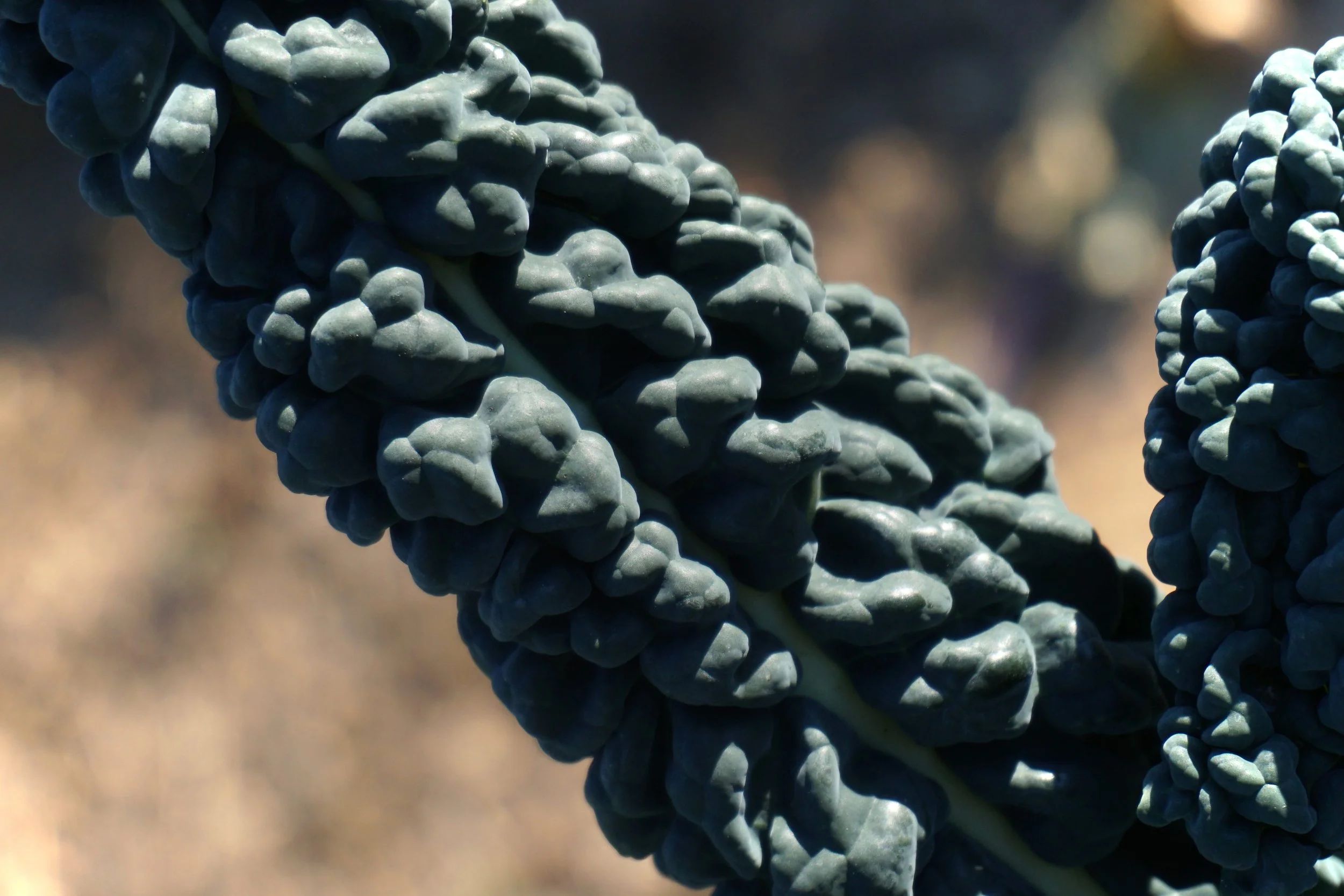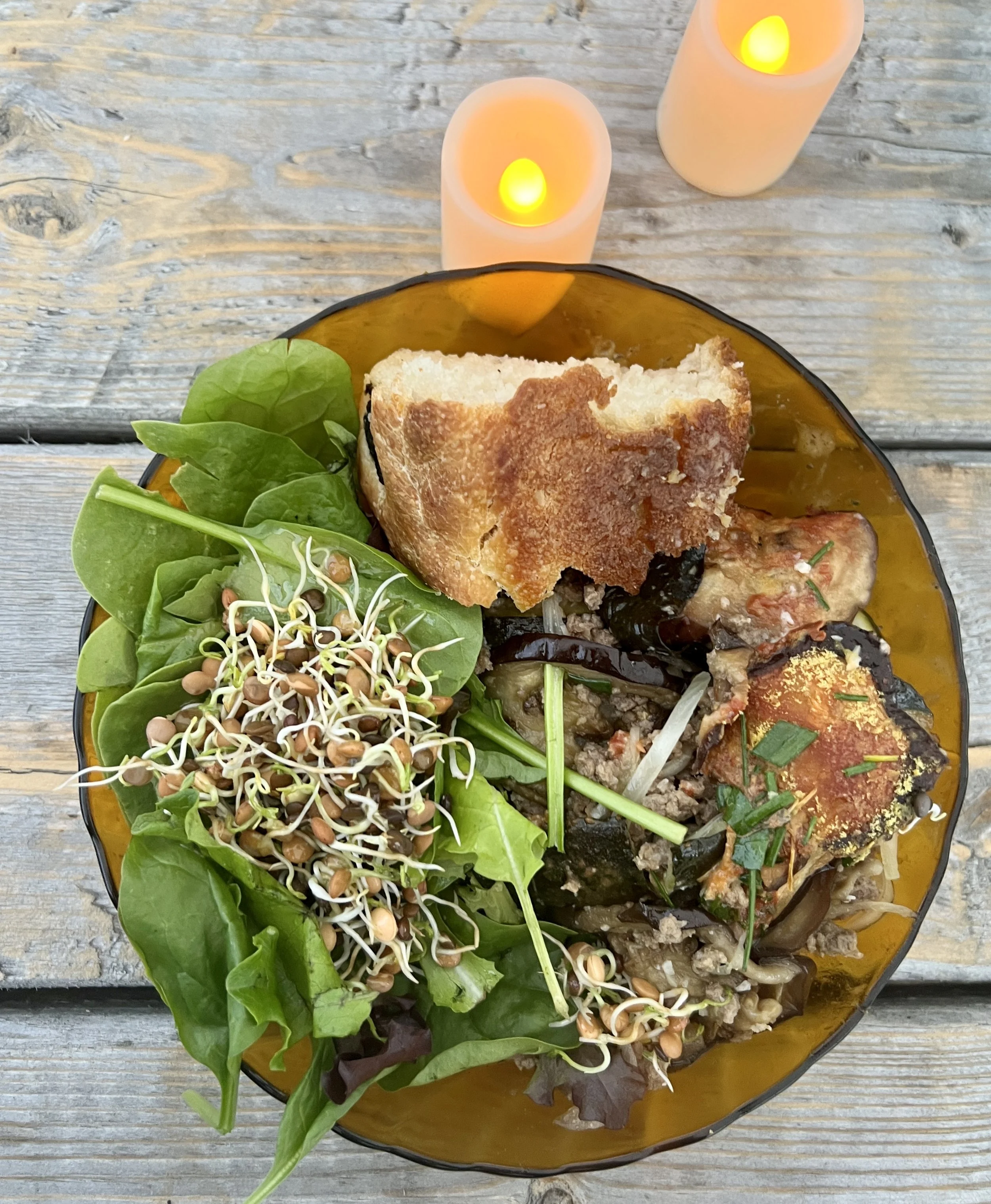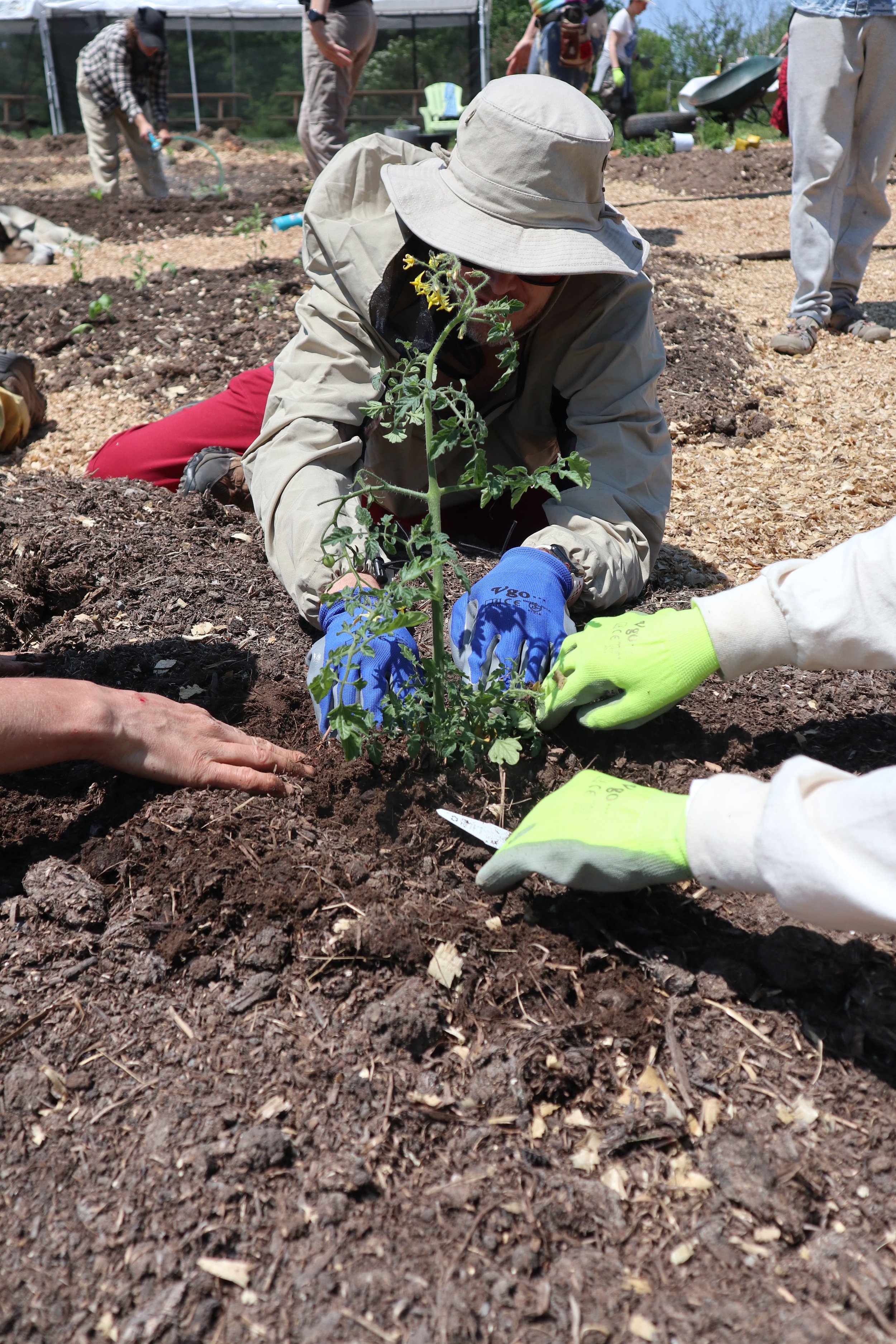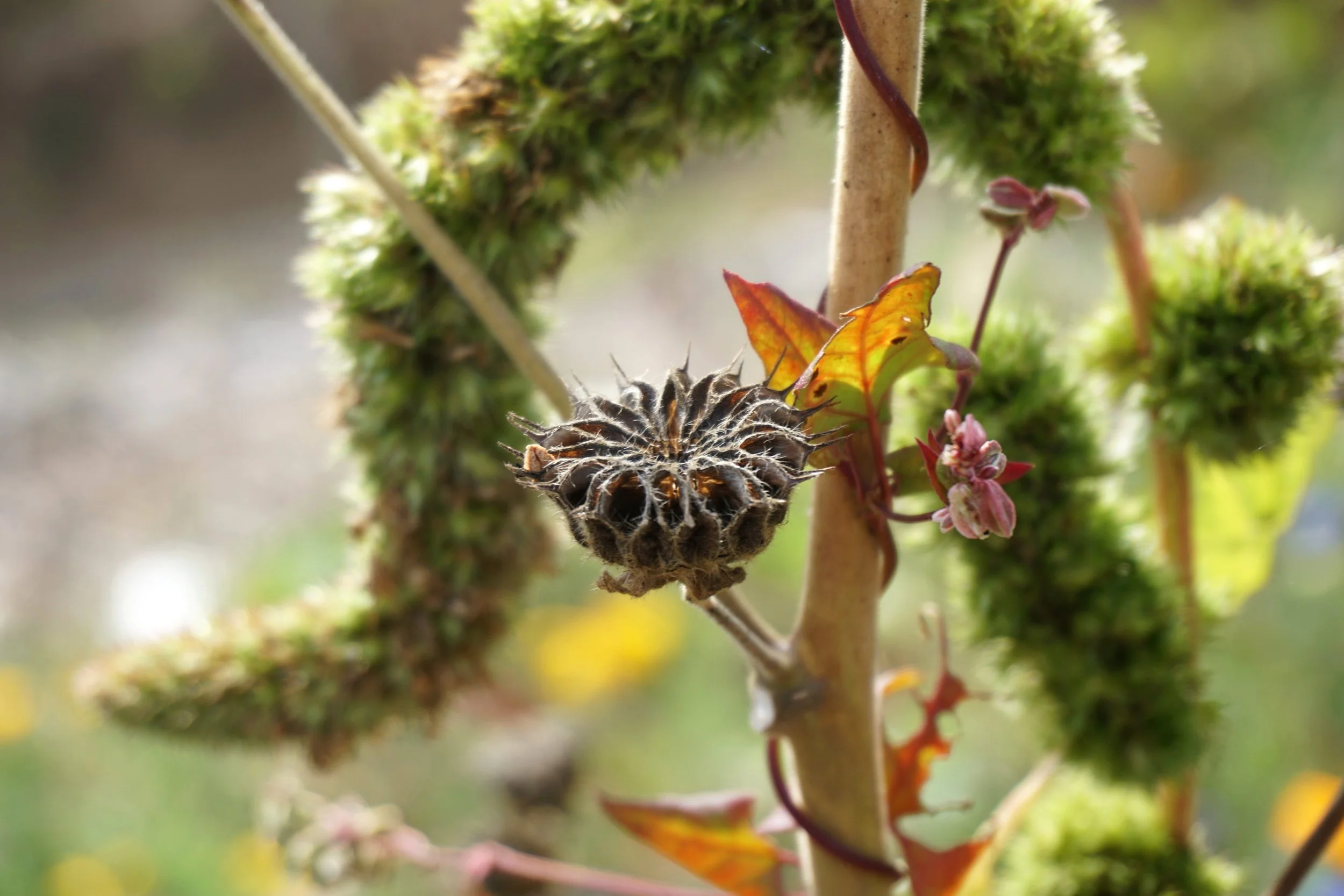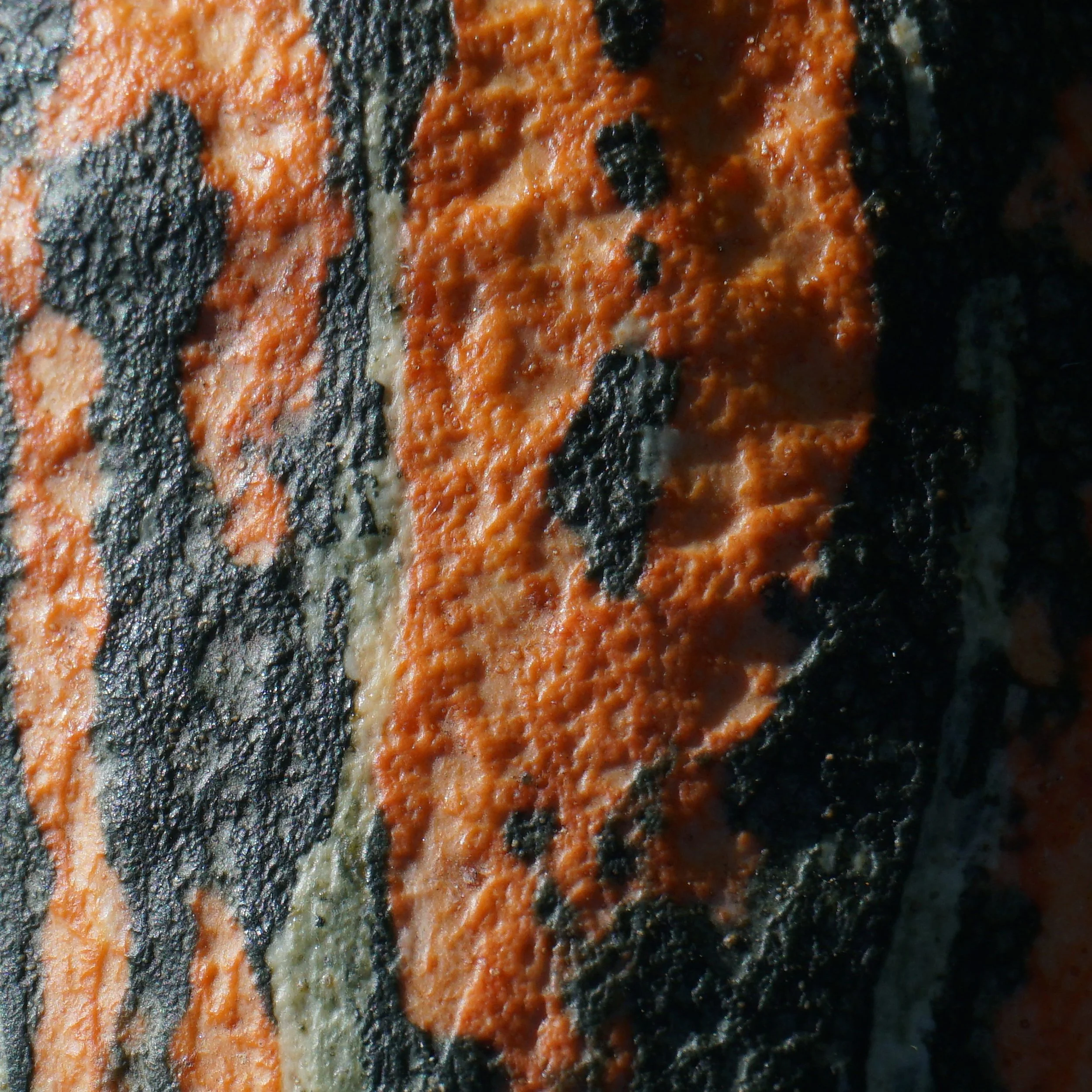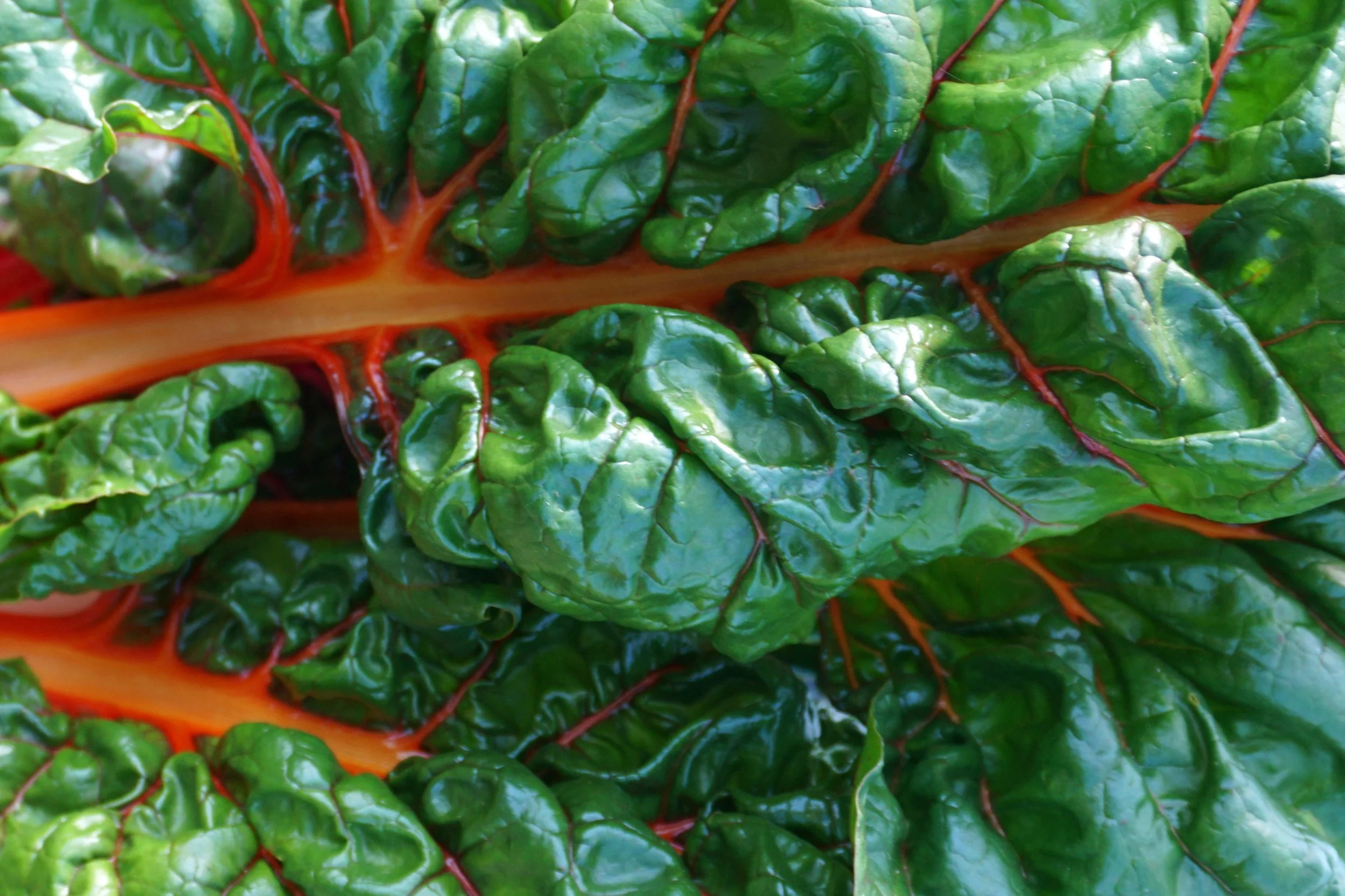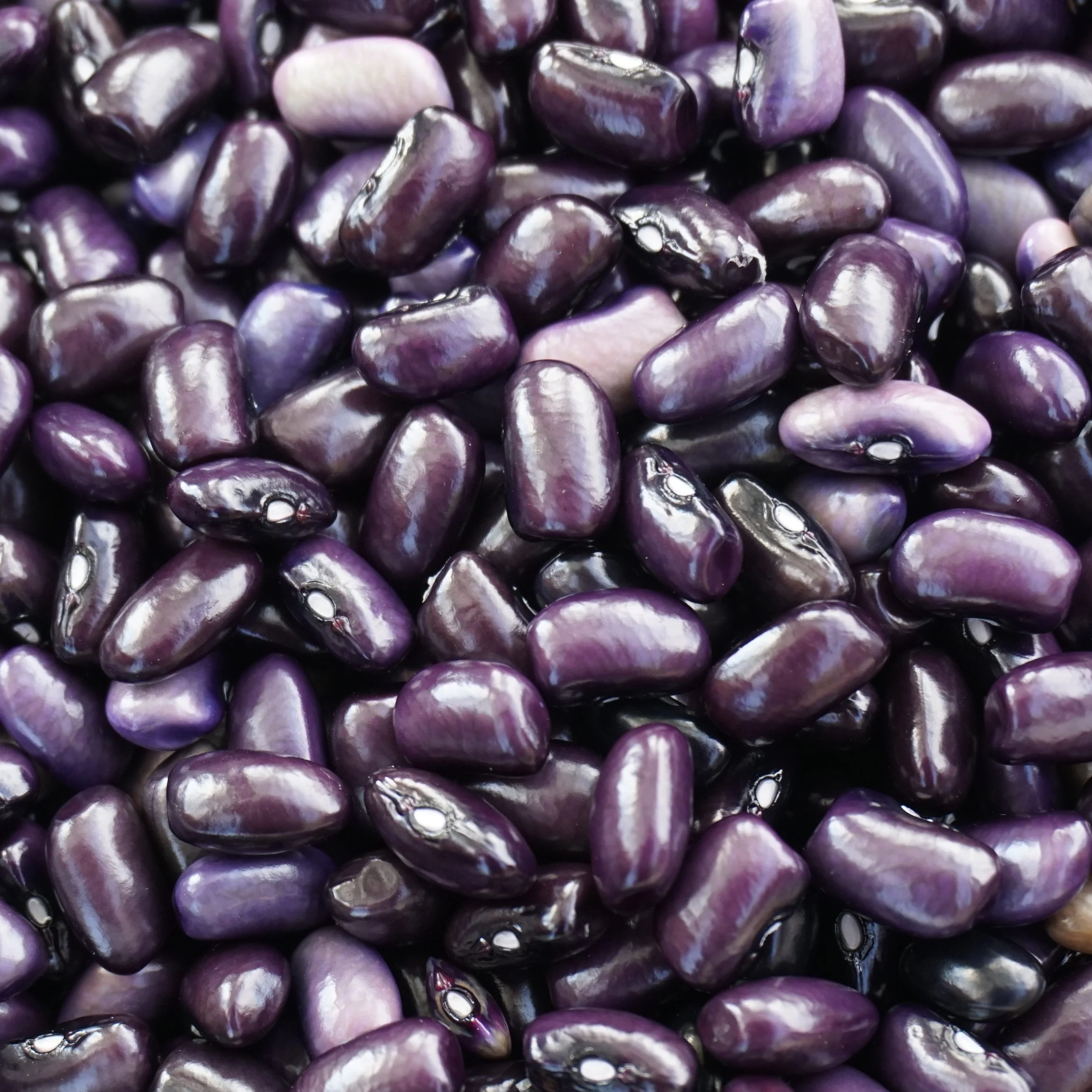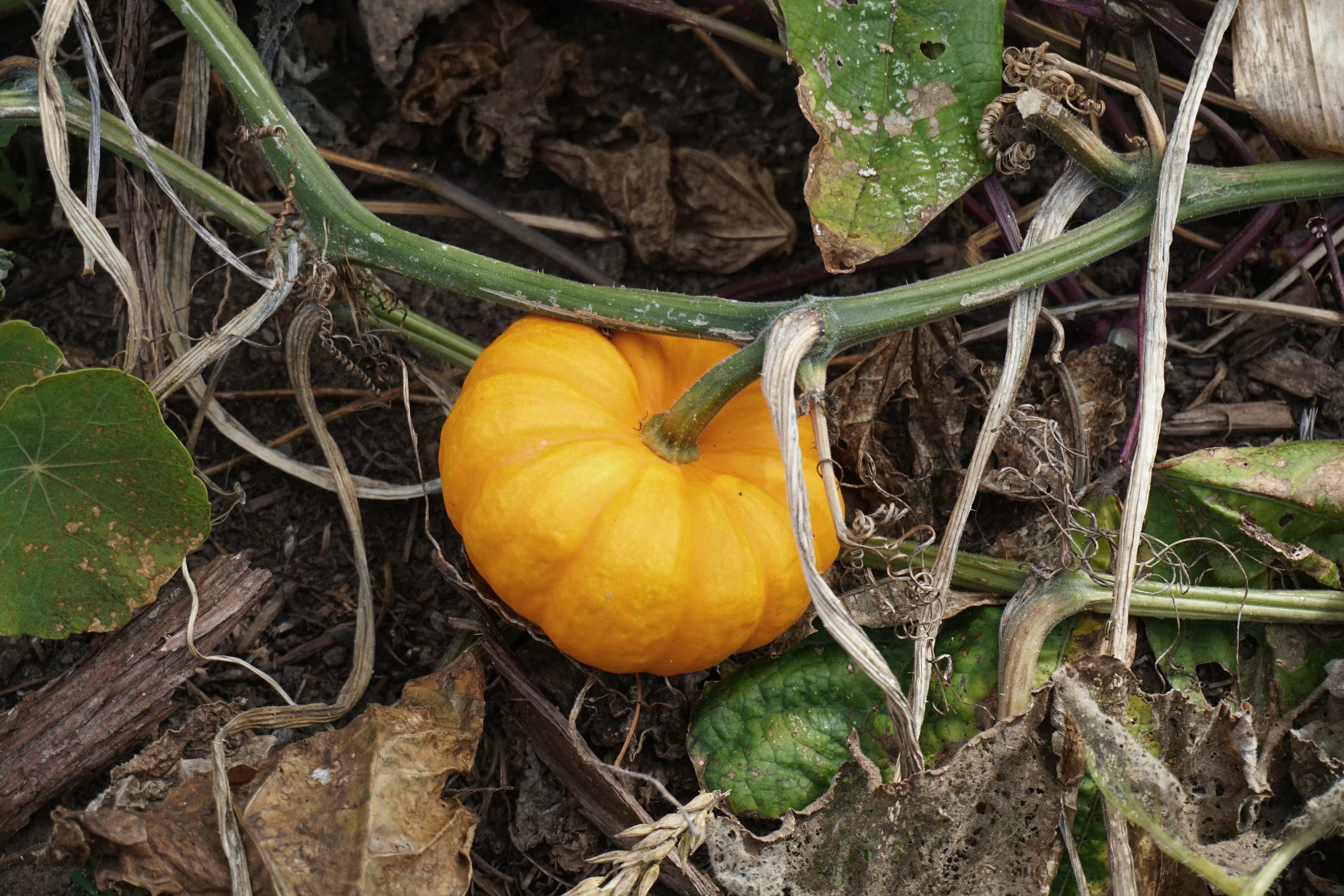
food as resistance
Growing community gardens and developing compassionate animal husbandry practices are powerful acts of resistance against the physical, emotional, and ecological dis-ease of our current food and health systems. Our gardens and animals represent our commitment to reclaiming food as a source of medicine, connection, and cultural memory, rather than commodities stripped of their nutrition and vitality. Most of us were neither farmers nor experienced gardeners when we began this journey, but when we put our hands in the soil, we are not only growing food, we are planting seeds of ancestral remembrance and belonging.
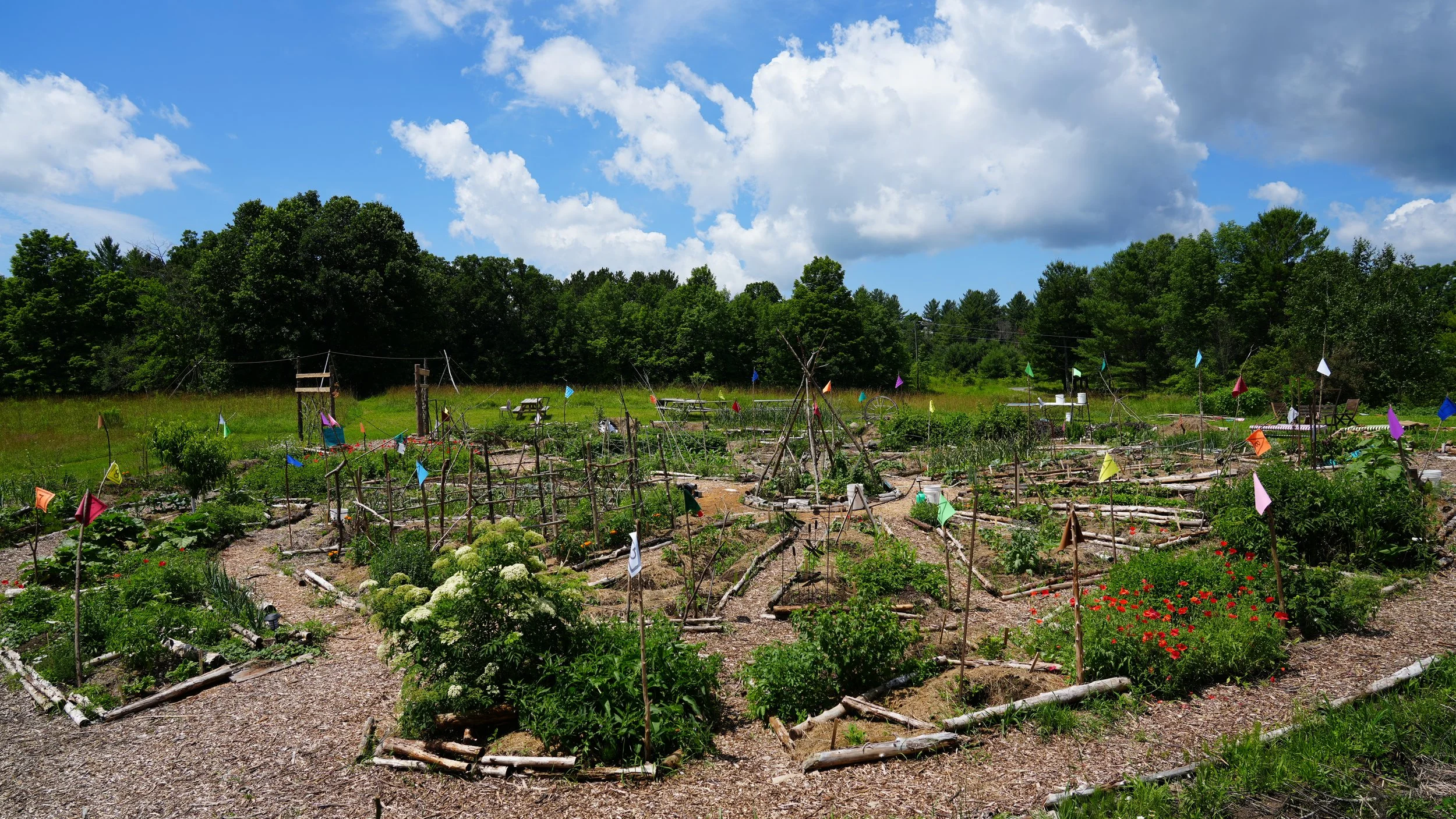
Permaculture, social permaculture and regenerative agriculture have guided our work from the very beginning. These principles teach us that diversity, mutuality and cross-pollination are the foundations of thriving ecosystems and communities. Food becomes not just sustenance but a commons, a shared resource that binds us together, a restored ritual of breaking bread that awakens our souls. Anishinaabe Indigenous grandmother Vivian Recollet, and her family lead the planting of the Becoming Community medicine gardens, whose harvest and seedlings support urban Indigenous communities for use in ceremonies and the establishment of new gardens in Ontario. Vivian’s teachings guide our hearts and our attention to what care and repair looks and feels like.

Nurturing relationships with people, food and gardens can begin to alchemize our broken systems into life sustaining cycles by literally and culturally composting waste into living soil. This is not just agriculture, it is the cycle of life. On our farm, we are raising grass-fed cattle in our silvopasture fields, where forest, fields and cows are interconnected. This approach regenerates our fields of grass without the need of outside inputs, supports biodiversity, and produces high-quality beef that feeds our community locally and sustainably. It is a living example of how food systems can nourish rather than deplete, an alternative to the extractive, chemically toxic agriculture that dominates modern food production.






